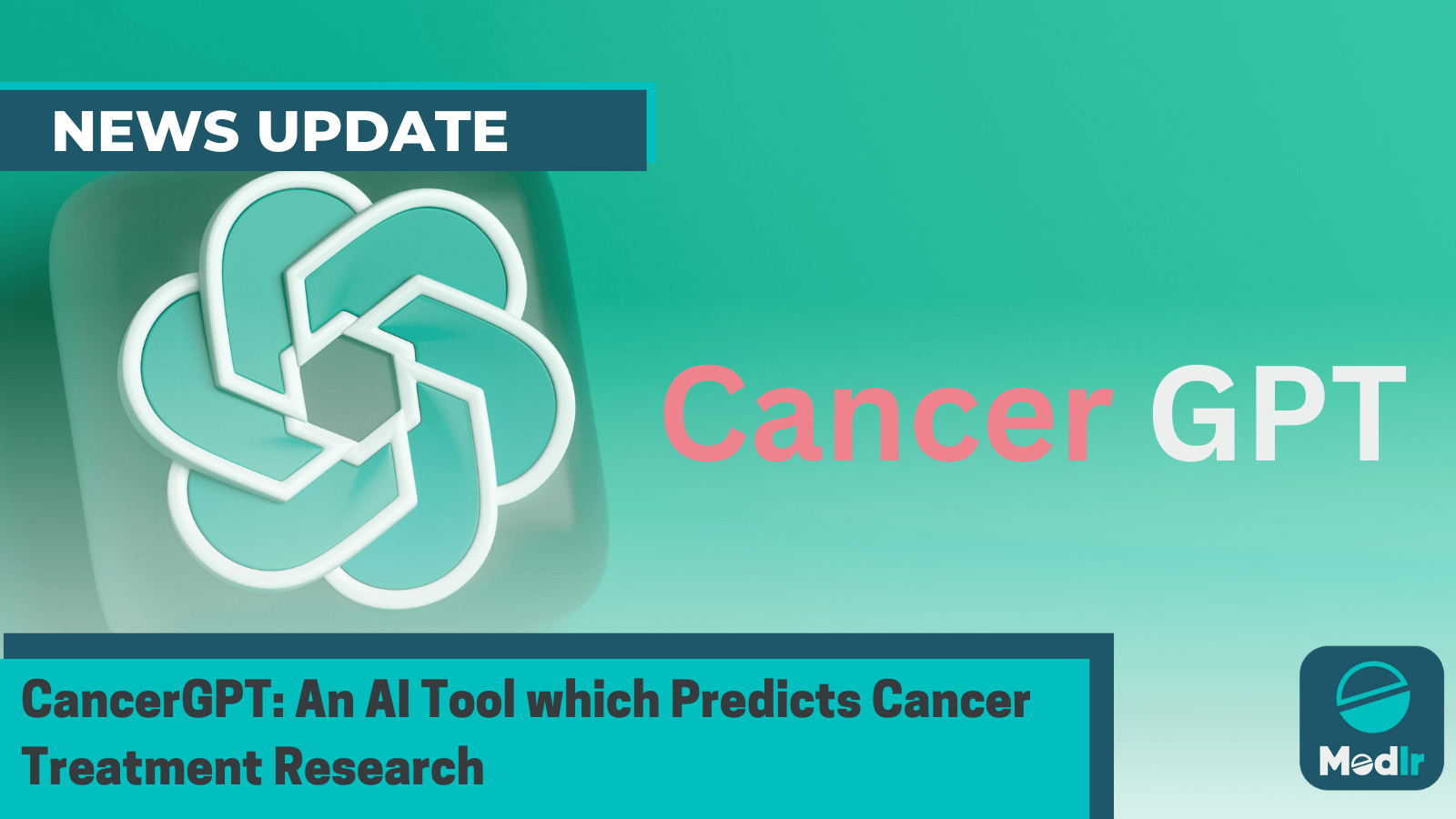CancerGPT: An AI Tool which Predicts Cancer Treatment Research
Written by Shaveta Arora
CancerGPT, an AI model developed by US researchers, utilizes language models to predict the impact of drug combinations on rare human tissues in cancer patients, offering potential breakthroughs in medical research.

U.S. researchers have taken a significant stride in medical research by developing CancerGPT, an artificial intelligence model. CancerGPT employs large pre-trained language models (LLMs) to predict the impact of various drug combinations on rare human tissues present in cancer patients. This breakthrough offers promising prospects, especially in domains with limited structured data and sample sizes.
Conducted by a collaborative team from the University of Texas and the University of Massachusetts, the study leveraged LLMs to extract valuable insights from medical research texts and apply them to infer biological tasks. Remarkably, the team demonstrated that the model achieved substantial accuracy, marking a noteworthy advancement in the field.
The research paper reads -
“Our experiments, which involved seven rare tissues from different cancer types, demonstrated that the LLM-based prediction model achieved significant accuracy with very few or zero samples.”
In 2023, the use of AI language models (LLMs) in medical research has gained significant attention. According to a report by Decrypt, a group of experts from the universities of Munich and Columbia, in collaboration with biotech company Protinea, developed Ankh, an LLM that comprehends protein communication. Another research team successfully employed AI technology to identify three potential senolytic drugs, which target and eliminate "zombie cells," offering potential benefits in slowing the aging process and mitigating age-related diseases.
CancerGPT, an LLM consisting of approximately 124 million parameters, was developed, comparable in size to the larger fine-tuned GPT-3 model with approximately 175 million parameters. The study utilized zero-shot GPT-3, a specific type of LLM, to generate coherent responses. By comparing the answers with existing scientific literature, the researchers assessed the accuracy of the LLM's arguments and observed predominantly precise results.
They also noted, however, that “the accuracy of its arguments cannot always be verified and may be susceptible to hallucination.”
The researchers hold the belief that even cancer types with limited structured data contain valuable information embedded in scientific literature. By harnessing the capabilities of pre-trained language models, they successfully tapped into existing resources and achieved a higher degree of generalizability, enhancing their ability to predict future reactions.
Generalizability refers to an AI model's capacity to apply its acquired knowledge from training data to predict outcomes for new, unseen data. This feature distinguishes AI from traditional deterministic computer programs.
The researchers propose further exploration of this approach in future studies, suggesting the development of an ensemble method that effectively combines existing structured features with newly discovered prior knowledge encoded in language models.
Despite potential challenges, the study findings underscore the significant value of AI technology in the realm of modern biology. AI's impact spans from improved personalization and increased efficiency to elevated success rates, making it a transformative force in the field.